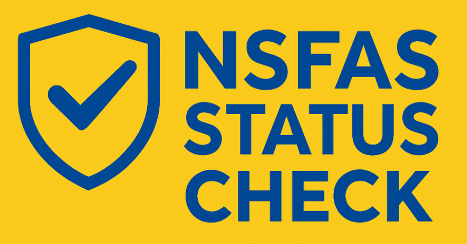South African agency NSFAS (National Student Financial Aid Scheme) facilitates students by providing financial aid so that they can get higher education and brighten their future. The N+2 rule is also a great facility that is provided to those students who face any emergency and didn’t complete the term. Let’s talk about N+2 rules with an example. Who can appeal why it exists, and many more.
What is the N+2 Rule?
NSFAS provides the N+2 rule to their students so that they can complete their degree by taking extra time. In the N+2 rule, N is the number of years a student is provided to complete their degree, and +2 is the extra two years. If they are unable to complete it within this period due to any issue, then an extra 2 years are also funded by NSFAS according to the N+2 rule.

Example of the N+2 Rule:
You are enrolled in a 3-year program, but you can’t complete it within this period. Then the university allowed you tofollow the NSFAS N+2 rule so that you could complete your degree. Remember, NSFAS funds you for these extra years.
A Student ABC enrolled in a 3-year program and didn’t complete it. As you know, N is the number of years, so N=3. The NSFAS N+2 rule allows you extra years, so you can complete it in 3+2=5 years. Also, look at NSFAS provisionally funded meaning.
What Happens If You Exceed the N+2 Rule?
If you exceed the N+2 rule, it means you are terminated from the NSFAS funding. It means you are no longer able to receive the NSFAS financial aid. Those Students who were unable to complete their studies due to some valid reasons can appeal the decision. Some of the valid appeal reasons are the following;
- Any health issue that leads to two or more months
- Family Tragedies
- Being a victim of crime
- Pregnancy
If you have exceeded the N+2 limit, NSFAS may stop funding your studies, so you should Track NSFAS funding to confirm your funding status
Can You Appeal for the N+2 rule?
Yes, every student who enrolls in an NSFAS-funded course can appeal for the N+2 rule. The following categories of students who are not eligible to appeal for the NSFAS N+2 Rule;
- Students who are enrolled on such a qualification that is not funded by NSFAS.
- Students who reached the N+2 rule or N+3 rule (only for disability cases).
- A Gap Year Student who was previously denied by NSFAS for financial aid due to academic ineligibility.
- The registration form is submitted to NSFAS by your institution, or your record is incorrect. Such queries are directed toward the institution.
Why Does the N+2 Rule Exist?
The N+2 rule still exists for the benefit of the students. It is a way to provide some extra time to those who are unable to complete their education on time due to various reasons. They can avail of the N+2 rule and get financial aid from NSFAS for the completion of their study and brighten their future. Some of the benefits of the N+2 rule are as follows;
- If any student is ill for 2 or more months and not able to complete the academic term can get an extra chance to complete it.
- Any mishap in the family during the exams, and the student misses the exam, then N+2 will provide a facility for him to continue his studies.
- If a student is pregnant and gives birth to a child during the academic term or exams. So she takes a rest at that time and later on continues her studies by using the N+2 rule.
- A disabled student faces many problems, and if that student doesn’t complete the term due to a medical issue. Don’t worry, NSFAS provides him N+3 rule for the completion of studies in a flexible manner. The N+3 rule means minimum academic years plus 3 additional years.
Many of the students are unable to complete their education due to health, family, or disability. The N+2 is the NSFAS rule for supporting them so they can continue their education. Those students are provided financial aid for an additional 2 years so that they can complete their education. Everything about the NSFAS N+2 rule is defined in detail. You can get all the details here, and if needed, then appeal for it.

